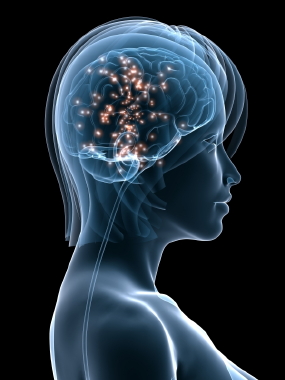NLP Master Practitioner - Hypnotherapist
- Ready to make a Change?
- Change does not have to be difficult or painful, and it begins to open creative possibilities in your mind that may continue to unfold for years.
- NLP and Hypnosis are excellent vehicles for change - almost effortless.
What is NLP?
Achieving goals, resolving phobias, releasing limiting decisions, healing ineffective patterns in your life and reframing situations which are unresourceful are just a handful of the wonderful changes that can be accomplished with NLP. The fascinating tools and techniques discovered within the field of NLP can help bring us to a clear understanding of our path in life and and how to best travel it. Not only can we move past the old ways of doing things, we learn how to integrate the models and methods of those who excel at the things you want to master to ensure a successful, option-filled happy present and future. Please contact me if you are interested in a session.
 Neuro-Linguistic Programming (NLP) applies an understanding of how information is coded and stored in the brain. This coding determines our conditioned responses to various events and people. Each piece of information, memory, feeling or experience can be traced, explored, understood, and, if desired, changed into the coding we would choose to have. This gives us the opportunity to change less resourceful conditioning into the resourcefulness we prefer.
Neuro-Linguistic Programming (NLP) applies an understanding of how information is coded and stored in the brain. This coding determines our conditioned responses to various events and people. Each piece of information, memory, feeling or experience can be traced, explored, understood, and, if desired, changed into the coding we would choose to have. This gives us the opportunity to change less resourceful conditioning into the resourcefulness we prefer.
With NLP we can change how we communicate internally and unconsciously, with the new messages of success, achievment, confidence, physical health and personal excellence.
NLP is this gathering of information to make models, based on the internal experience and information processing of the people being studied and modeled, including the part that is outside of their conscious awareness.
The word neuro refers to an understanding of the brain and its functioning. Linguistic relates to the communication aspects (both verbal and non-verbal) of our information processing. Programming is the behavioral and thinking patterns we all go through.
There is a relationship between perceptions, thinking and behavior that is neuro-linguistic in nature. The relationship is operating all the time, no matter what we are doing, and it can be studied by exploring our internal or subjective experience.
The formal definition of Neuro-Linguistic Programming is: The study of the structure of subjective experience.
Everything in NLP is based on specific evidence procedures for effectiveness and is thoroughly tested. "Doing NLP" means working diligently to be sure we know what we know, and use it appropriately.
At the same time, observing this person in action will often lead to new and better questions to ask in the process. Most of us do this already, though perhaps not systematically.
The addition of specific NLP technology makes it possible to discover much of what this human model does that he or she is not aware of. To do this well means to actually study the structure of people's thought processes and internal experience, as well as their observable behavior.
NLP was developed in the mid-70s by John Grinder, a Professor at UC Santa Cruz and Richard Bandler, a graduate student. NLP, as most people use the term today, is a set of models of how communication impacts and is impacted by subjective experience. It's more a collection of tools than any overarching theory. NLP is heavily pragmatic: if a tool works, it's included in the model, even if there's no theory to back it up. None of the current NLP developers have done research to "prove" their models correct. The party line is "pretend it works, try it, and notice the results you get. If you don't get the result you want, try something else."
We believe NLP is an excellent framework for releasing mental, emotional, even physical barriers to experiencing freedom and joy in each moment. In conjunction with hypnosis, it is a powerful tool for change.

NLP techniques are the best processes for creating fast and long-lasting change in your life. Many other systems are good at discovering problems but don't give you tools for painless, fast change.
- Tad James
PART II
Neuro-Linguistic Programming - Further background information:
Neuro-Linguistic Programming (NLP) is often referred to as "The User's Manual" to the brain. It is at once the study of the human mind, a methodology for improving communication, and a personal growth technology that acknowledges the incredible variety of human expression while providing a way to simply and efficiently understand, organize, and utilize that variety to help us tap our true potential.
NLP is a concrete and fundamental tool for changing perceptions into something that works for us, rather than against us. We can use this tool to alter our belief system to one that allows us greater happiness and fulfillment. We can also use it to create better behaviors, or ones that are more in line with our beliefs, so that what we do and what we say are aligned with what we believe to be true.
Since its inception, NLP has been used by Fortune 100 companies, celebrities, star athletes, and former US Presidents to improve both their effectiveness and their popularity. Indeed, much of the personal growth field has been driven by concepts associated with NLP. Its techniques are now widely used in sports, therapy, and all areas of business and education. Consistent, powerful results have created a worldwide explosion of interest in NLP across a broad spectrum of human endeavors.